Filter by
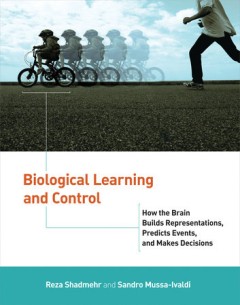
Biological learning and control: How the brain builds representations, predic…
In this work, the authors present a theoretical framework for understanding the regularity of the brain's perceptions, its reactions to sensory stimuli, and its control of movements.OCLC-licensed vendor bibliographic record.
- Edition
- -
- ISBN/ISSN
- 9780262301282
- Collation
- 1 online resource (385 pages) :illustrations.
- Series Title
- -
- Call Number
- -
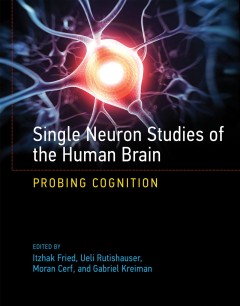
Single Neuron Studies of the Human Brain: Probing Cognition
Foundational studies of the activities of spiking neurons in the awake and behaving human brain and the insights they yield into cognitive and clinical phenomena.OCLC-licensed vendor bibliographic record.
- Edition
- -
- ISBN/ISSN
- 9780262323994
- Collation
- 1 online resource (viii, 365 pages) :illustrations (some color)
- Series Title
- -
- Call Number
- -
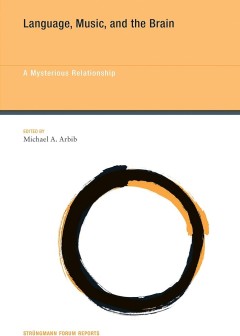
Language, Music, and the Brain: A Mysterious Relationship
Through four key themes, this book explores the relationships between language, music, and the brain and the crosstalk between them: song and dance as a bridge between music and language; multiple levels of structure from brain to behaviour to culture; the semantics of internal and external worlds and the role of emotion; and the evolution and development of language. Specially commissioned exp…
- Edition
- -
- ISBN/ISSN
- 9781461934394
- Collation
- 1 online resource (xiii, 662 pages).
- Series Title
- -
- Call Number
- -
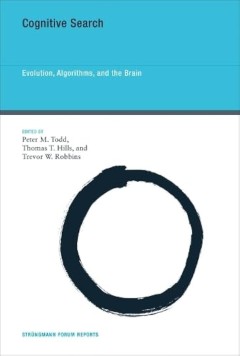
Cognitive Search: Evolution, Algorithms, and the Brain
Over a century ago, William James proposed that people search through memory much as they rummage through a house looking for lost keys. Like other animal species search space, we scour our environments for territory, food, mates, and other goals, including information. We search for items in visual scenes, for historical facts and shopping deals on internet sites, for new friends to add to our…
- Edition
- -
- ISBN/ISSN
- 9780262306003
- Collation
- 1 online resource (xi, 403 pages) :illustrations.
- Series Title
- -
- Call Number
- -
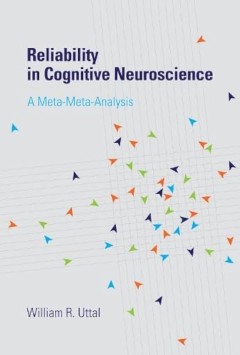
Reliability in Cognitive Neuroscience: A Meta-Meta-Analysis
Cognitive neuroscientists increasingly claim that brain images generated by new brain imaging technologies reflect, correlate, or represent cognitive processes. This book warns against these claims, arguing that, despite its utility in anatomic and physiological applications, brain imaging research has not provided consistent evidence for correlation with cognition. It bases this argument on a …
- Edition
- -
- ISBN/ISSN
- 9780262312042
- Collation
- 1 online resource (xiii, 238 pages) :illustrations
- Series Title
- -
- Call Number
- -

Rebel Genius: Warren S. McCulloch's Transdisciplinary Life in Science
"The book is a scientific biography of American neurophysiologist and cybernetician Warren S. McCulloch, one that places his life and work in historical context. By focusing on the various identities that he assumed throughout his life's major work--the study of the brain and mind--the book examines the intermingling of McCulloch's professional and personal worlds, and by doing so provides a mu…
- Edition
- -
- ISBN/ISSN
- 9780262335386
- Collation
- 1 online resource (xiii, 305 pages) :illustrations
- Series Title
- -
- Call Number
- -

Evolution and Culture: A Fyssen Foundation Symposium
OCLC-licensed vendor bibliographic record.
- Edition
- -
- ISBN/ISSN
- 9780262316224
- Collation
- 1 online resource (xvii, 296 pages) :illustrations.
- Series Title
- -
- Call Number
- -
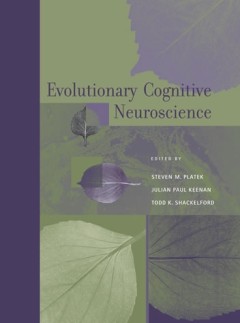
Evolutionary Cognitive Neuroscience
An essential reference for the new discipline of evolutionary cognitive neuroscience that defines the field's approach of applying evolutionary theory to guide brain-behavior investigations.OCLC-licensed vendor bibliographic record.
- Edition
- -
- ISBN/ISSN
- 9780262281669
- Collation
- 1 online resource (xix, 616 pages) :illustrations.
- Series Title
- -
- Call Number
- -
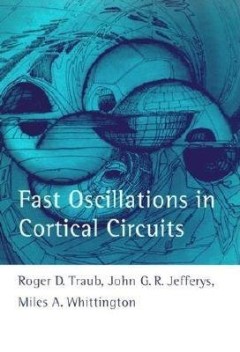
Fast Oscillations in Cortical Circuits
AnnotationOCLC-licensed vendor bibliographic record.
- Edition
- -
- ISBN/ISSN
- 9780262285148
- Collation
- 1 online resource (308 pages).
- Series Title
- -
- Call Number
- -
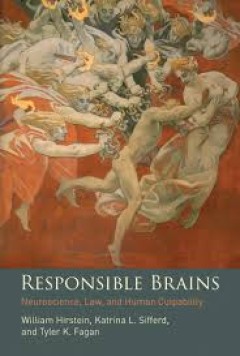
Responsible brains :neuroscience, law, and human culpability
An examination of the relationship between the brain and culpability that offers a comprehensive neuroscientific theory of human responsibility. When we praise, blame, punish, or reward people for their actions, we are holding them responsible for what they have done. Common sense tells us that what makes human beings responsible has to do with their minds and, in particular, the relationship b…
- Edition
- -
- ISBN/ISSN
- 9780262349277
- Collation
- 1 online resource (viii, 292 pages)
- Series Title
- -
- Call Number
- -
 Computer Science, Information & General Works
Computer Science, Information & General Works  Philosophy & Psychology
Philosophy & Psychology  Religion
Religion  Social Sciences
Social Sciences  Language
Language  Pure Science
Pure Science  Applied Sciences
Applied Sciences  Art & Recreation
Art & Recreation  Literature
Literature  History & Geography
History & Geography